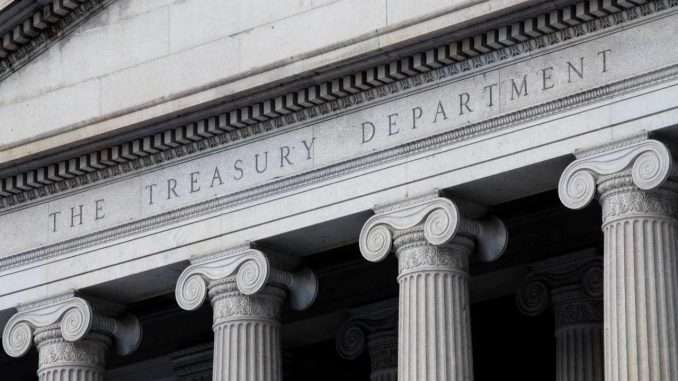
The U.S. Department of the Treasury has answered some questions on regulatory compliance relating to Tornado Cash, a just lately sanctioned crypto mixer. The solutions embrace how to withdraw crypto or full transactions initiated utilizing Tornado Cash prior to its sanction and the way to take care of “dusting” transactions.
Treasury Department Publishes Tornado Cash FAQs
The U.S. Department of the Treasury answered some ceaselessly requested questions Tuesday concerning the sanctioned cryptocurrency mixing service Tornado Cash.
On Aug. 8, the Treasury’s Office of Foreign Assets Control (OFAC) sanctioned the Ethereum-based mixer and prohibited U.S. individuals from “engaging in any transaction with Tornado Cash or its blocked property or interests in property.”
One of the questions considerations how to full transactions involving Tornado Cash that had been initiated prior to the sanction. In order to full the transactions or withdraw cryptocurrency with out violating U.S. sanctions laws, the Treasury Department defined:
U.S. individuals or individuals conducting transactions inside U.S. jurisdiction could request a particular license from OFAC to interact in transactions involving the topic digital foreign money.
“U.S. persons should be prepared to provide, at a minimum, all relevant information regarding these transactions with Tornado Cash, including the wallet addresses for the remitter and beneficiary, transaction hashes, the date and time of the transaction(s), as well as the amount(s) of virtual currency,” the Treasury added.
Another query relates to reporting obligations of “dusting” transactions. The Treasury famous that the OFAC is conscious that “certain U.S. persons may have received unsolicited and nominal amounts of virtual currency or other virtual assets from Tornado Cash, a practice commonly referred to as ‘dusting.’”
While cautioning that “Technically, OFAC’s regulations would apply to these transactions,” the Treasury defined that if these dusting transactions haven’t any different sanctions nexus in addition to Tornado Cash:
OFAC is not going to prioritize enforcement in opposition to the delayed receipt of preliminary blocking stories and subsequent annual stories of blocked property from such U.S. individuals.
The Treasury confused that “U.S. persons are prohibited from engaging in transactions involving Tornado Cash, including through the virtual currency wallet addresses that OFAC has identified.” However, the authority clarified:
Interacting with open-source code itself, in a approach that doesn’t contain a prohibited transaction with Tornado Cash, will not be prohibited.
Lawyer Jake Chervinsky shared his ideas on the OFAC’s clarification in a collection of tweets. He famous that the FAQs “don’t fully address the collateral damage caused by the designation.” Commenting on the OFAC requiring “each person to file their own individual license request,” Chervinsky stated: “That shouldn’t be necessary: U.S. persons shouldn’t have to ‘apply’ for their own money.”
Regarding dusting, he stated since victims are required to file preliminary blocking stories and subsequent annual stories, “Enforcement remains on the table if those reports are delayed.” The lawyer confused:
Deprioritizing prosecution isn’t sufficient: OFAC shouldn’t contemplate prosecuting victims in any respect.
Following the sanction of Tornado Cash, Coin Center, a non-profit targeted on the coverage points going through cryptocurrencies, stated that the OFAC has exceeded its statutory authority.
What do you consider the Treasury’s clarification relating to the blending service Tornado Cash? Let us know within the feedback part beneath.
Image Credits: Shutterstock, Pixabay, Wiki Commons
Disclaimer: This article is for informational functions solely. It will not be a direct provide or solicitation of a proposal to purchase or promote, or a advice or endorsement of any merchandise, companies, or corporations. Bitcoin.com doesn’t present funding, tax, authorized, or accounting recommendation. Neither the corporate nor the creator is accountable, straight or not directly, for any harm or loss prompted or alleged to be brought on by or in reference to the usage of or reliance on any content material, items or companies talked about on this article.



